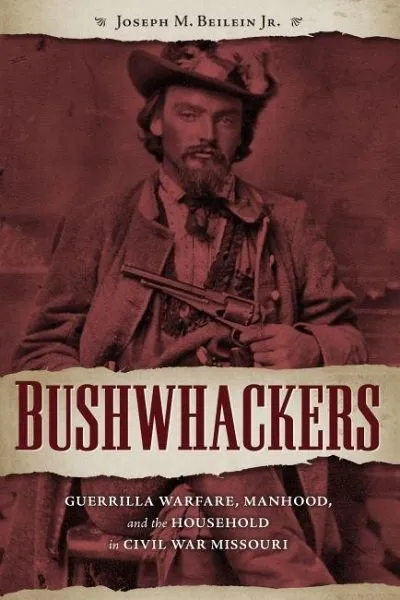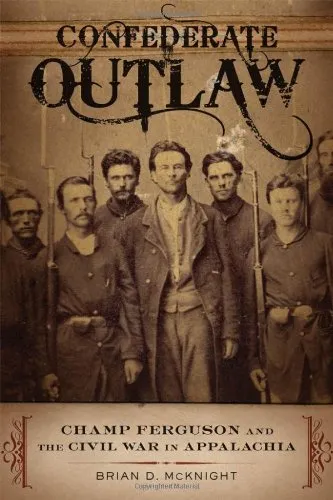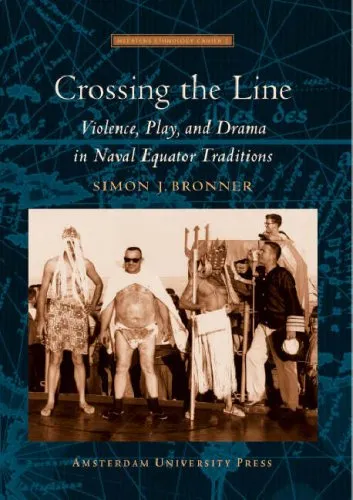Bushwhackers: Guerrilla Warfare, Manhood, and the Household in Civil War Missouri
4.5
Reviews from our users

You Can Ask your questions from this book's AI after Login
Each download or ask from book AI costs 2 points. To earn more free points, please visit the Points Guide Page and complete some valuable actions.Related Refrences:
Bushwhackers: Guerrilla Warfare, Manhood, and the Household in Civil War Missouri
Welcome to an exploration of the multi-faceted dynamics of guerrilla warfare in Civil War Missouri, a time and place where household, community, and the concept of manhood intersected in compelling and often harrowing ways.
Detailed Summary of the Book
'Bushwhackers: Guerrilla Warfare, Manhood, and the Household in Civil War Missouri' dives deep into the unique and tumultuous environment of Missouri during the American Civil War. This book meticulously documents the phenomenon of bushwhacking—a form of guerrilla warfare carried out by groups of men who were often non-uniformed fighters aligned with Confederate interests. These men operated in and around the communities where they lived, blurring the lines between combatant and civilian.
In the book, the concept of "manhood" is critically examined as a driving force for these individuals. The social constructs of the time placed a heavy emphasis on personal honor, martial prowess, and the duty to protect the household. Bushwhackers often justified their violent actions as a means to shield families and uphold community stability in a lawless and chaotic wartime setting. The book paints a vivid picture of how these guerrillas cultivated their own identities through acts of savagery and valor, grounding their personal and collective quests in the loyalty they owed to their households.
Key Takeaways
- The Blurred Line Between Soldier and Civilian: Bushwhackers operated in a gray area, often living dual lives that enabled them to fight and hide within civilian populations.
- Manhood and Martial Identity: The concept of manhood during this time was inextricably linked to one's ability to engage in and survive violent conflicts, thus earning respect and maintaining honor.
- Household as a War Theater: The home front in Missouri served as a critical node of operation and support for bushwhacking activities, leading to a deeply entrenched guerrilla presence in rural communities.
Famous Quotes from the Book
“In the lives of Missouri's bushwhackers, war was not a distant, abstract notion; it was an intimate and ruthless force, interwoven with the social fabric of everyday life.”
“These men did not merely bring the war into their homes; the household itself often became a veritable command center for guerrilla activities.”
Why This Book Matters
This book plays a critical role in reshaping our understanding of the Civil War by focusing on a less frequently discussed tactical and social element—guerrilla warfare in Missouri. It expands historical narratives beyond conventional battles and commanders, offering a glimpse into the unique, small-scale conflicts that regular civilians experienced. By examining the intersection of warfare, masculinity, and domestic life, it provides crucial insights into how cultural and social factors influenced acts of warfare and how those acts, in turn, impacted society.
Through painstaking research and vivid storytelling, this book broadens the scope of Civil War historiography and encourages readers to reassess the socio-military dynamics of the era, particularly in border states like Missouri where loyalties and identities were contested and complex.
Free Direct Download
You Can Download this book after Login
Accessing books through legal platforms and public libraries not only supports the rights of authors and publishers but also contributes to the sustainability of reading culture. Before downloading, please take a moment to consider these options.
Find this book on other platforms:
WorldCat helps you find books in libraries worldwide.
See ratings, reviews, and discussions on Goodreads.
Find and buy rare or used books on AbeBooks.
1464
بازدید4.5
امتیاز0
نظر98%
رضایتReviews:
4.5
Based on 0 users review
Questions & Answers
Ask questions about this book or help others by answering
No questions yet. Be the first to ask!














